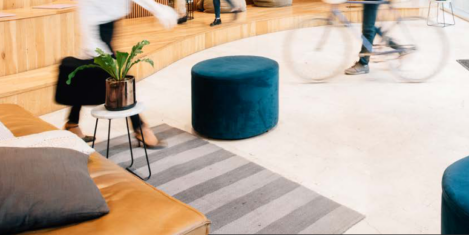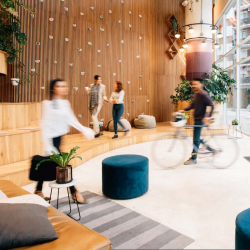To provide the best experiences, we use technologies like cookies to store and/or access device information. Consenting to these technologies will allow us to process data such as browsing behaviour or unique IDs on this site. Not consenting or withdrawing consent, may adversely affect certain features and functions.
The technical storage or access is strictly necessary for the legitimate purpose of enabling the use of a specific service explicitly requested by the subscriber or user, or for the sole purpose of carrying out the transmission of a communication over an electronic communications network.
The technical storage or access is necessary for the legitimate purpose of storing preferences that are not requested by the subscriber or user.
The technical storage or access that is used exclusively for statistical purposes.
The technical storage or access that is used exclusively for anonymous statistical purposes. Without a subpoena, voluntary compliance on the part of your Internet Service Provider, or additional records from a third party, information stored or retrieved for this purpose alone cannot usually be used to identify you.
The technical storage or access is required to create user profiles to send advertising, or to track the user on a website or across several websites for similar marketing purposes.
 The National Grid has warned that the UK could face blackouts this winter. The worst-case scenario is that homes and businesses could lose power for pre-defined periods of up to three hours if gas power plants are not able to keep running due to the energy crisis that keeps on giving – or rather, taking. While the British government has dropped its energy rationing campaign, which once formed a crucial part of its plan to prepare for potential energy shortages and blackouts, countries across Europe are drawing up winter contingency plans, as are forward-thinking businesses. (more…)
The National Grid has warned that the UK could face blackouts this winter. The worst-case scenario is that homes and businesses could lose power for pre-defined periods of up to three hours if gas power plants are not able to keep running due to the energy crisis that keeps on giving – or rather, taking. While the British government has dropped its energy rationing campaign, which once formed a crucial part of its plan to prepare for potential energy shortages and blackouts, countries across Europe are drawing up winter contingency plans, as are forward-thinking businesses. (more…)

































October 19, 2022
Remote workers can find it hard to switch off. There’s now an app for that
by Anthony Thompson • Comment, Flexible working, Wellbeing